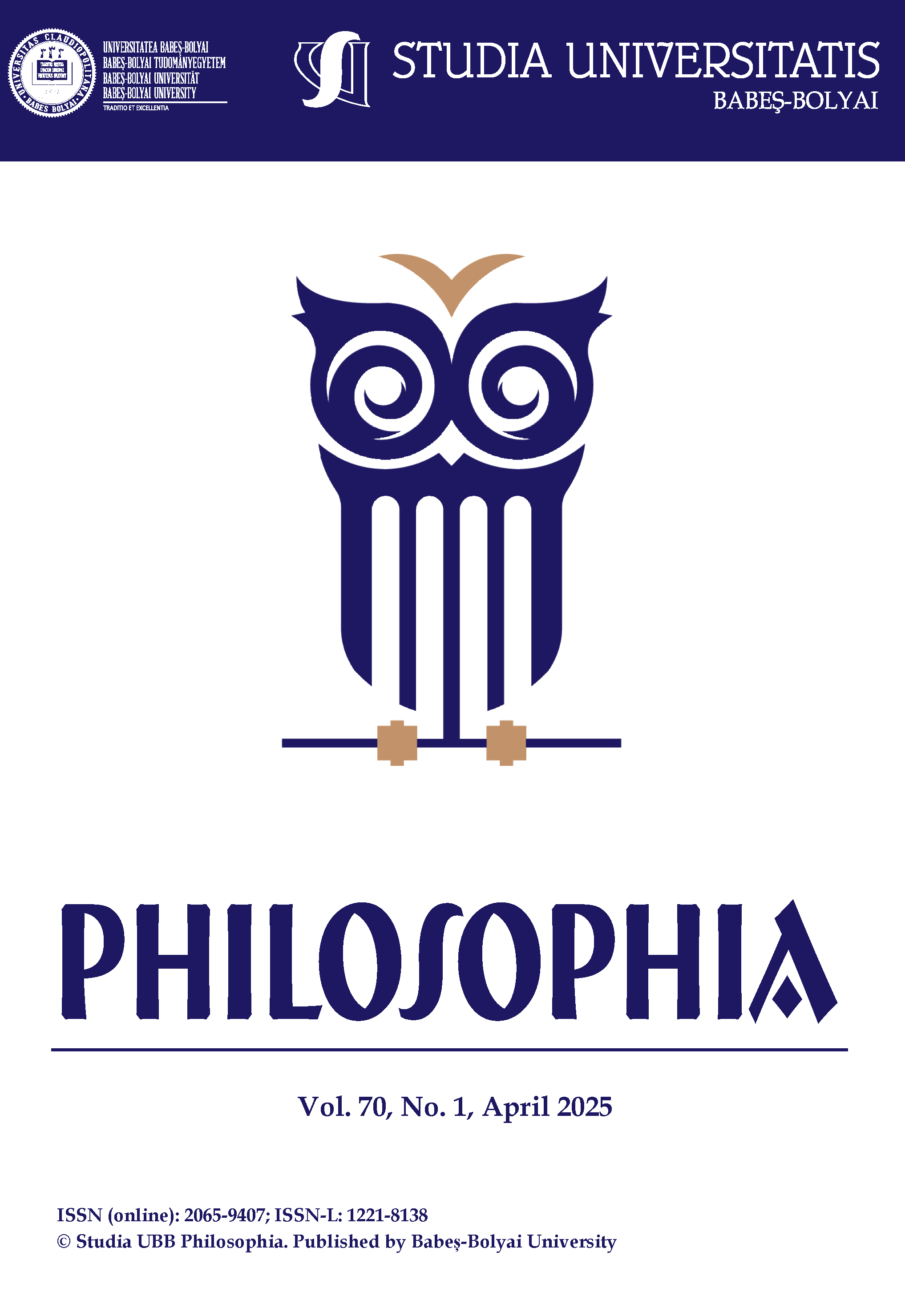Ethical Dimensions of AI Within Cyber-Integrated Ecosystems
DOI:
https://doi.org/10.24193/subbphil.2025.1.05Keywords:
AI ethics, machinewashing, waste management, greenwashing, environmental ethicsAbstract
The innovative aspirations and territorial expansion ambitions of Homo technologicus have transformed it into a powerful entity capable of altering anthropic spaces and the surrounding environment in unprecedented ways. The consequences of advanced technologies and AI development can be vast, with asymmetric impacts and profound implications. Therefore, it is essential to examine potential concerns, vulnerabilities, threats, and promising advantages with transparency following the ethical values guiding the scientific community. In light of the rapid proliferation of new technologies, this article aims to examine the integration of artificial intelligence (AI) in waste management, focusing on its potential to enhance sustainable living and support biodiversity. To mitigate associated risks, the article proposes a holistic framework emphasizing relational ethics, ensuring transparency, accountability, and genuine ethical commitments in AI deployment. Additionally, the concept of humanwashing, where AI-enabled machines are anthropomorphized to foster acceptance and trust, raises concerns about misleading perceptions regarding AI capabilities. To effectively navigate these ethical challenges, the article advocates for a multidisciplinary approach involving researchers, policymakers, industry leaders, and civil society. Emphasizing relational ethics requires a shift from a traditional ethical framework to one that recognizes all actors' interconnectedness and cumulative impact. Ultimately, the article underscores the necessity of a rigorous ethical framework for integrating AI into waste management. This framework ensures that artificial intelligence technologies contribute positively to sustainable living, preserve biodiversity, and encourage a balanced interplay between people and technological advancements.
References
Abioye, O. F., Oyedotun, T. D., & Moonsammy, S. (2021). Data privacy concerns in AI-driven waste management systems. Journal of Information Privacy and Security, 17(2), 105–119.
Baddegama, M., et al. (2022). Policy initiatives for AI in waste management. Journal of Cleaner Production, 375, 134096, p. 222.
Benkler, Y. (2019). Don’t let industry write the rules for AI. Nature, 569, 161.
Chauhan, S., Singh, A., & Tiwari, M. K. (2023). Machine learning applications in waste sorting: A review. Resources, Conservation & Recycling, 192, 112–123.
Chen, H., Zhang, Z., & Liu, J. (2021). AI-driven waste sorting: Challenges and opportunities. Waste Management & Research, 39(1), 77–89.
Chidepatil, A., Bindra, P., Kulkarni, D., Qazi, M., Kshirsagar, M., & Sankaran, K. (2020). From trash to cash: How blockchain and multi-sensor-driven artificial intelligence can transform circular economy of plastic waste. Administrative Sciences, 10(2), 23.
Constantinescu, M., & Crisp, R. (2022). Can robotic AI systems be virtuous, and why does this matter? International Journal of Social Robotics, 14(6), 1547–1557.
Cuozzo, G. (2020). New wastes. Nature is not an unlimited station. In L. Valera & J. C. Castilla (Eds.), Global Changes: Ethics, Politics, and Environment in the Contemporary Technological World (pp. 57–65). Springer.
Dubey, R., Gunasekaran, A., & Childe, S. J. (2020). Smart bin systems in waste management: A review. Waste Management & Research, 38(3), 293–303.
Giger, J., Piçarra, N., Alves-Oliveira, P., Oliveira, R., & Arriaga, P. (2019). Humanization of robots: Is it really such a good idea? Human Behavior and Emerging Technologies, 1(2), 111–123.
Hayes, P., Fitzpatrick, N., & Ferrández, J. M. (2024). From applied ethics and ethical principles to virtue and narrative in AI practices. AI and Ethics, p. 10.
Hayes, P., et al. (2024). From applied ethics and ethical principles to virtue and narrative in AI practices, p. 23.
Heikkilä, J., Heikkilä, M., & Nieminen, M. (2023). AI-driven platforms for data sharing in waste management. Waste Management Bulletin, 2(3), 244–263.
Hird, M. J. (2015). Waste, environmental politics and dis/engaged publics. Theory, Culture & Society, 32(5–6), 1–23.
Kalluri, P. (2020). Don’t ask if artificial intelligence is good or fair, ask how it shifts power. Nature, 583, 169.
Modak, S., et al. (2022). Quality control in AI-driven recycling: Current trends and future directions. Journal of Industrial Ecology, 26(1), 143–158.
Mori, M., MacDorman, K. F., & Kageki, N. (2012). The uncanny valley. IEEE Robotics and Automation Magazine, 19(2), 98–100.
Olawade, K., et al. (2024). Machinewashing in AI ethics: An empirical study. AI & Society, 40(2), 250–268.
Rust, R. T., & Huang, M.-H. (2021). A strategic framework for artificial intelligence in marketing. Journal of the Academy of Marketing Science, 49(1), 30–50.
Scorici, G., Schultz, M. D., & Seele, P. (2022). Anthropomorphization and beyond: Conceptualizing humanwashing of AI-enabled machines. AI & Society.
Seele, P., & Schultz, M. D. (2022). Machinewashing: The AI ethics transparency gap. Journal of Business Ethics, 180(4), 1071–1090.
Subramanian, V., et al. (2021). AI-driven robots in recycling: Enhancing efficiency and sustainability. Journal of Cleaner Production, 279, 123–210.
Umbrello, S. (2019). Values, imagination, and praxis: Towards a value sensitive future with technology. Science and Engineering Ethics.
Valera, L., & Castilla, J. C. (2020). Global changes: Ethics, politics, and environment in the contemporary technological world. Springer.
Downloads
Published
How to Cite
Issue
Section
License
Copyright (c) 2025 Studia Universitatis Babeș-Bolyai Philosophia

This work is licensed under a Creative Commons Attribution-NonCommercial-NoDerivatives 4.0 International License.



